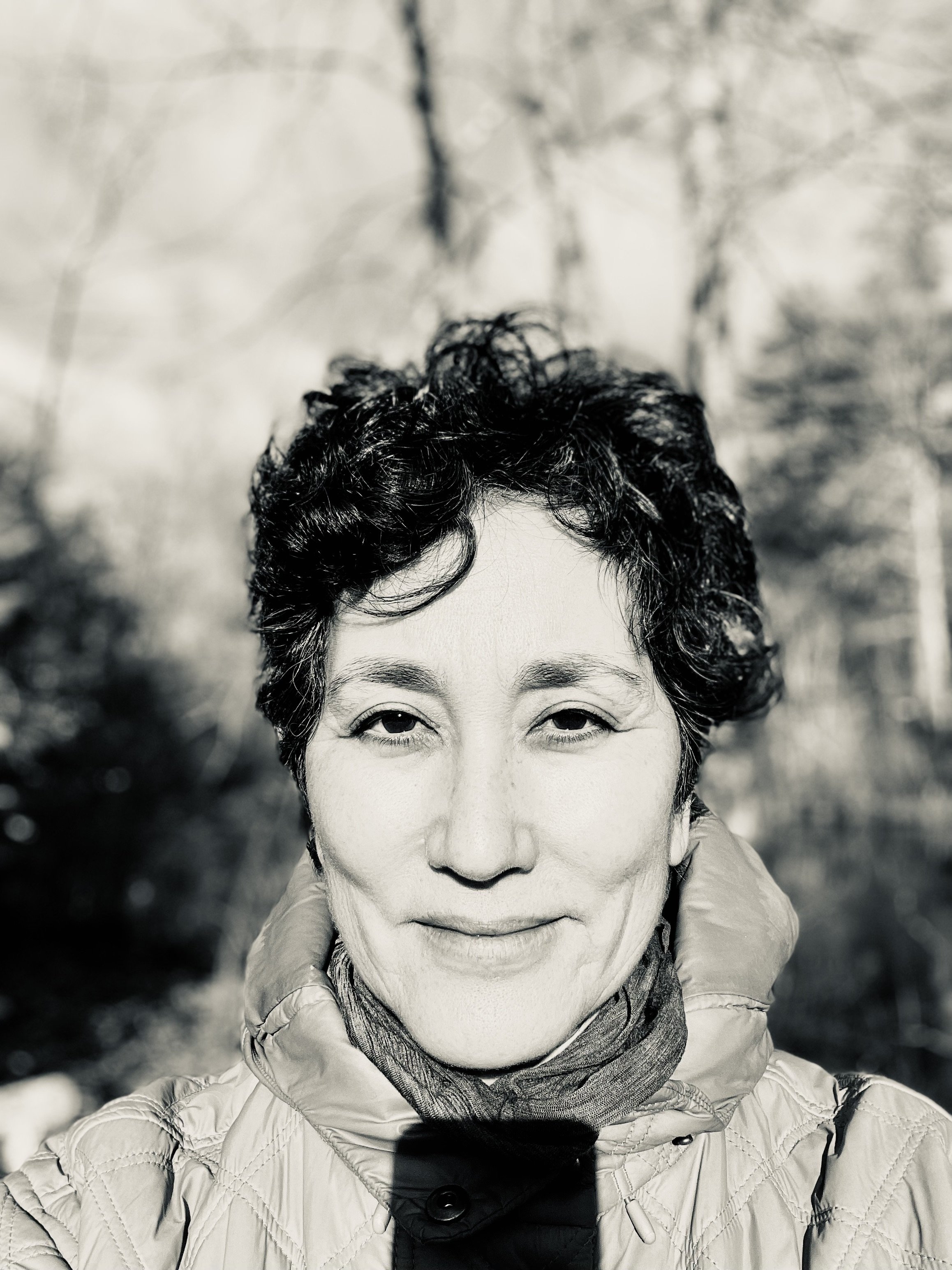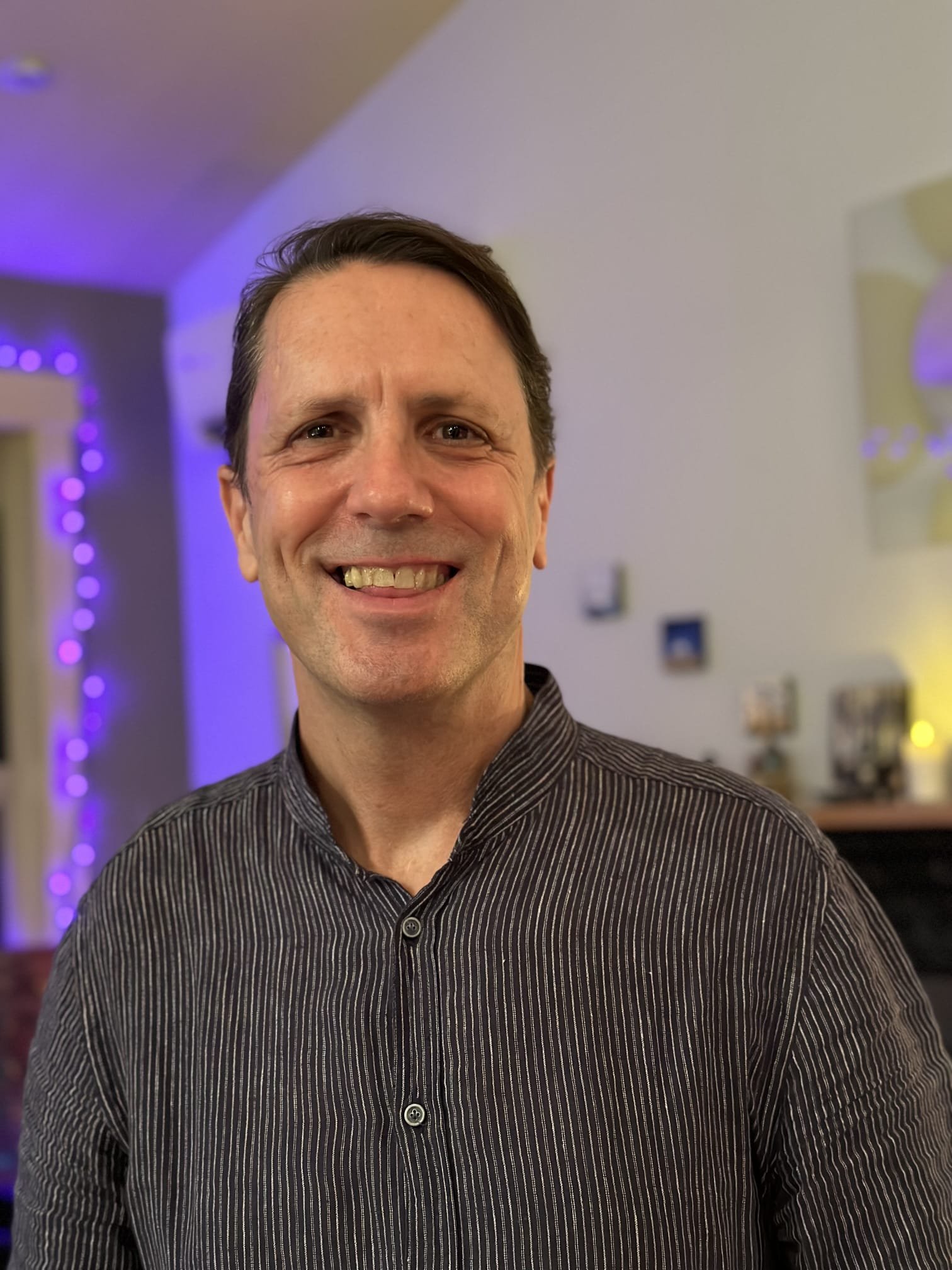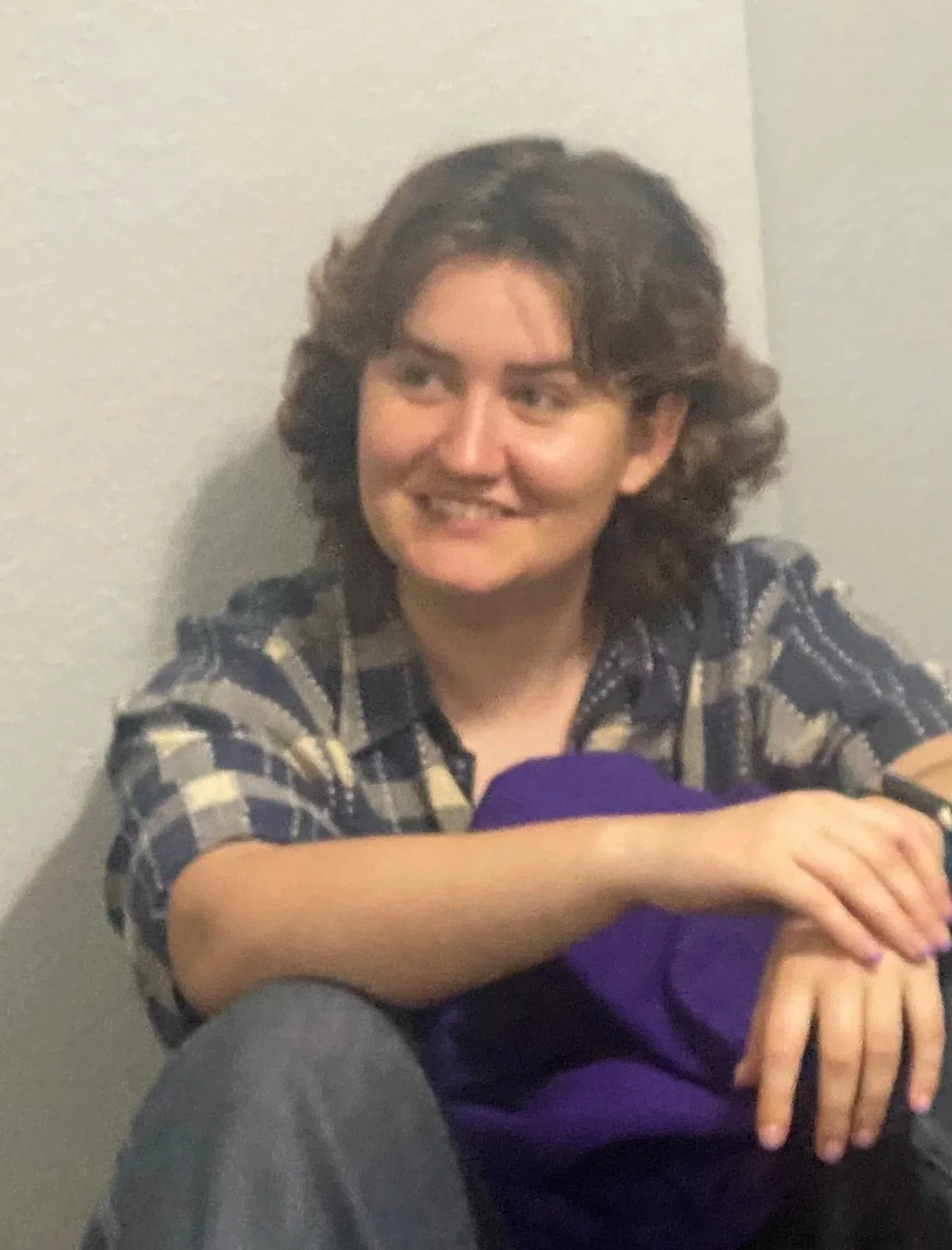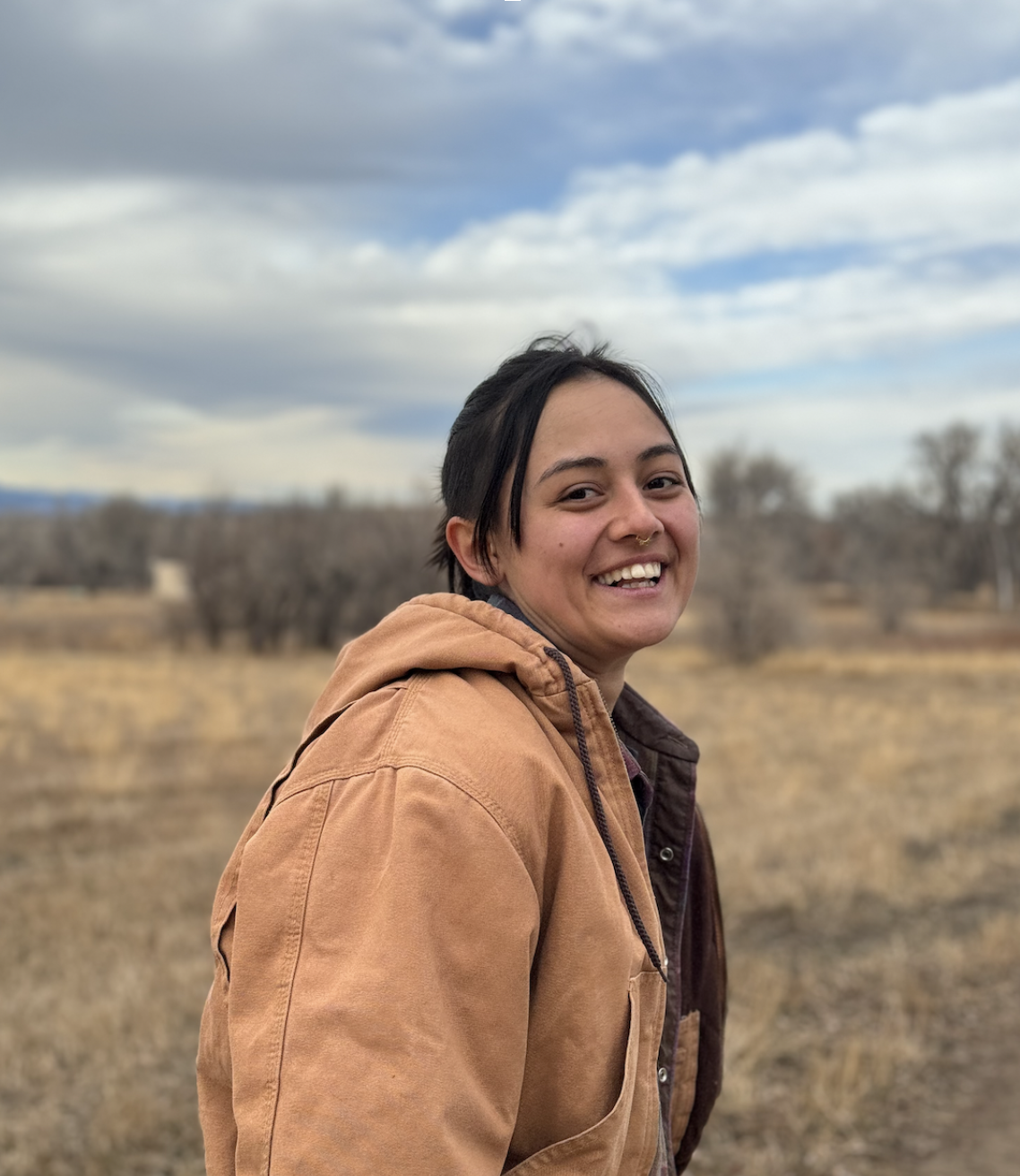
Our Team
Ana-Mari Mitsue Hamada Izuel
(Board Chair)
Ana-Mari Mitsue Hamada Izuel is a student and teacher of Iyengar yoga, practitioner of Mahayana and Theravada Buddhism, writer, and community advocate. Her given names hold references to the mother, her grace, a goddess of nature, beloved truth, white jasmine, lapis lazuli, a branch of light, a harbor, a rice paddy, and a tree near a mountain stream. She is a descendant of Japanese-American immigrants from Yamaguchi-Suoshima to the Hawaiian Islands and Spanish-Mexican immigrants from Villanua, Huesca and Santa Cruz del Monte, Palencia to Baja California, Mexico.
-
Ana-Mari lives with her partner, David Sirgany, a visual artist and somatic educator, in the place where traditional Chumash lands meet the Pacific, on California's Estero Bay. At this stage in her life, she is attempting to respond creatively through spiritual and political praxis, living ancestral understandings to meet the disorientations, disruptions, and uncertainties as blessings during this time of great unravelling and emergence. She holds advanced degrees in Political Science, International Relations, Latin American Political Economy, and Near Eastern Studies from UCLA and the Claremont Graduate School, and spent close to two decades working as a lecturer, researcher, fundraiser, and advisor in academia, international organizations, NGO/ nonprofit, and philanthropic communities in the US, Europe, and Latin America. A native English and Spanish speaker, she works and plays in French and German, and chants and prays in Sanskrit and Pali. She is deeply honored and inspired to be part of Campesino Commons' field of co-creation, especially their gift of welcome into exploring and creating holistic responses to transform our systems of collective care, healing, justice, representation, and learning.
Susan Maze-Rothstein
Susan Maze-Rothstein seeks societal justice informed by ancestral wisdom. Most recently and for 6 years, until January, 2025, she directed the Center for Restorative Justice at Suffolk University. Trained at Cornell University and Boston College Law School, she practiced law for 5 years, adjudicated for 12 years, has 22 years’ experience in social justice education teaching team lawyering at Northeastern University School of Law and 22 years’ experience in restorative justice.
-
A lawyer, a judge and then a law professor, at Northeastern University School of Law, for over two decades, professor Maze-Rothstein directed its signature social justice course and program. Among some 300 social justice projects that she managed during her tenure, six involved restorative justice. The six led to her founding a juvenile court diversion non-profit, Our Restorative Justice that successfully diverted young people, pre-arraignment to reparative practices averting a juvenile record. Professor Maze-Rothstein co-chaired the Restorative Justice Coalition of MA, that helped to advance and shape Mass. G.L. c. 276B, which promotes the use of restorative justice here in the Commonwealth. She trains, coaches, consults, and presents in restorative justice.
Carlo Voli
Carlo Voli is a long-time community organizer and environmental advocate with deep ties to Nicaragua. Originally from Madrid, Spain, he holds a B.A. in Social Anthropology from the London School of Economics and has worked in grassroots education and sustainable development in Venezuela, South Africa, and Nicaragua. Carlo lived for eight years in the rural Nicaraguan community of Teotecacinte, where he promoted permaculture and organic farming and continues to maintain close relationships.
-
Now based in the Seattle area, Carlo has spent the past 20 years engaged in sustainability, climate justice and Indigenous solidarity movements, including six months at the Standing Rock resistance camp. He currently works as a Spanish interpreter and remains active in local organizing.
Selah Dow (Any/All)
Selah was born and raised in Lafayette Colorado, growing up in Nyland Cohousing Community. She holds a B.A. in history from Knox University, and currently works with archival materials at the History Colorado Center. They are invested in the impact of history on current systems of oppression, and how a more equitable distribution and accessibility of historical materials through digitization can positively impact disenfranchised groups. Selah identifies as gay, is bilingual in English and Spanish, and is deeply committed to social, political, and economic justice. She has lived in Colorado, Illinois and Spain, and is planning to attend graduate school in history, with the ultimate goal of becoming a history professor.
Bianca Acosta (she/they/ella)
(Co-Executive Director)
Bianca is a queer Indigenous/Mestiza woman from Mexico. She holds a B.A. in Education with a focus on Multicultural Studies from the University of Northern Colorado. Bianca is a practitioner of ancestral and Earth-based healing traditions, rooted in curanderismo, and is also certified and a devoted practitioner of permaculture design and social permaculture. Bianca weaves ancestral tradition, and permaculture practices to nurture climate resilience and community healing. She is dedicated to uplifting immigrant, campesino, and BIPOC communities through storytelling, ceremony, and land-based learning. Guided by her prayer to co-create a more beautiful and just world, Bianca walks in deep relationship with Tonantzin (Mother Earth), honoring her roots while sowing seeds for collective liberation.
Jesse Dow (He/They)
(Co-Executive Director)
Jesse Koshu Dow is a Zen Priest, a Buddhist Eco-Chaplain, a father, a restorative circle keeper, a local farmer, and a Co-Executive Director of Campesino Commons. They worked for 3 years as the Executive Director of Rocky Mountain Ecodharma Retreat Center, where they supported about 30 retreats for about 700 people per year. They also worked In the Boulder Valley School District for 12 years as a Family Literacy Site Manager and another 3 years as a preschool community liaison. They have been practicing meditation for 34 years in the Soto Zen tradition, first as a student of Kobun Chino Otogawa Roshi, and then as a student of Michael Newhall Shoho Roshi, with whom they were ordained as a priest. Over the last six years, Jesse has also practiced with Kittisoro and Thanissara in the Chan and Theravada traditions.
-
At the ages of 12 and 13, Jesse lived and attended school in San Cristobal De Las Casas, in South Mexico. At the age of 25, Jesse lived for a short while in Managua, Nicaragua, doing political reconciliation work between liberal and conservative parties that had fought against each other in the Nicaraguan Revolution and in the Contra War. Jesse is a fluent Spanish speaker, and much of his heart resides with hispanic culture.
Luna Rosal (they/them)
(Praxis Coordinator)
Luna is an interspiritual practitioner with roots in Chishti Sufism and Buddhism. They are queer and mixed-race, descended from northern Filipinos and Mormon settlers by way of Scotland and the British Isles. Luna studied Environmental Justice and Religion and worked as a student restorative justice coordinator at Naropa University, graduating with their thesis on Ancestral Futurism for political organizing. They currently facilitate interspiritual circles through the Charis Foundation for New Monasticism and Interspirituality, do education and grassroots organizing along the front range, and are a part of the cooperative housing movement in Denver.
“The Circle has healing power. In the Circle, we are all equal. When in the Circle, no one is in front of you. No one is behind you. No one is above you. No one is below you. The Sacred Circle is designed to create unity. The Hoop of Life is also a circle. On this hoop there is a place for every species, every race, every tree and every plant. It is this completeness of Life that must be respected in order to bring about health on this planet.”
~Dave Chief, Oglala Lakota~







